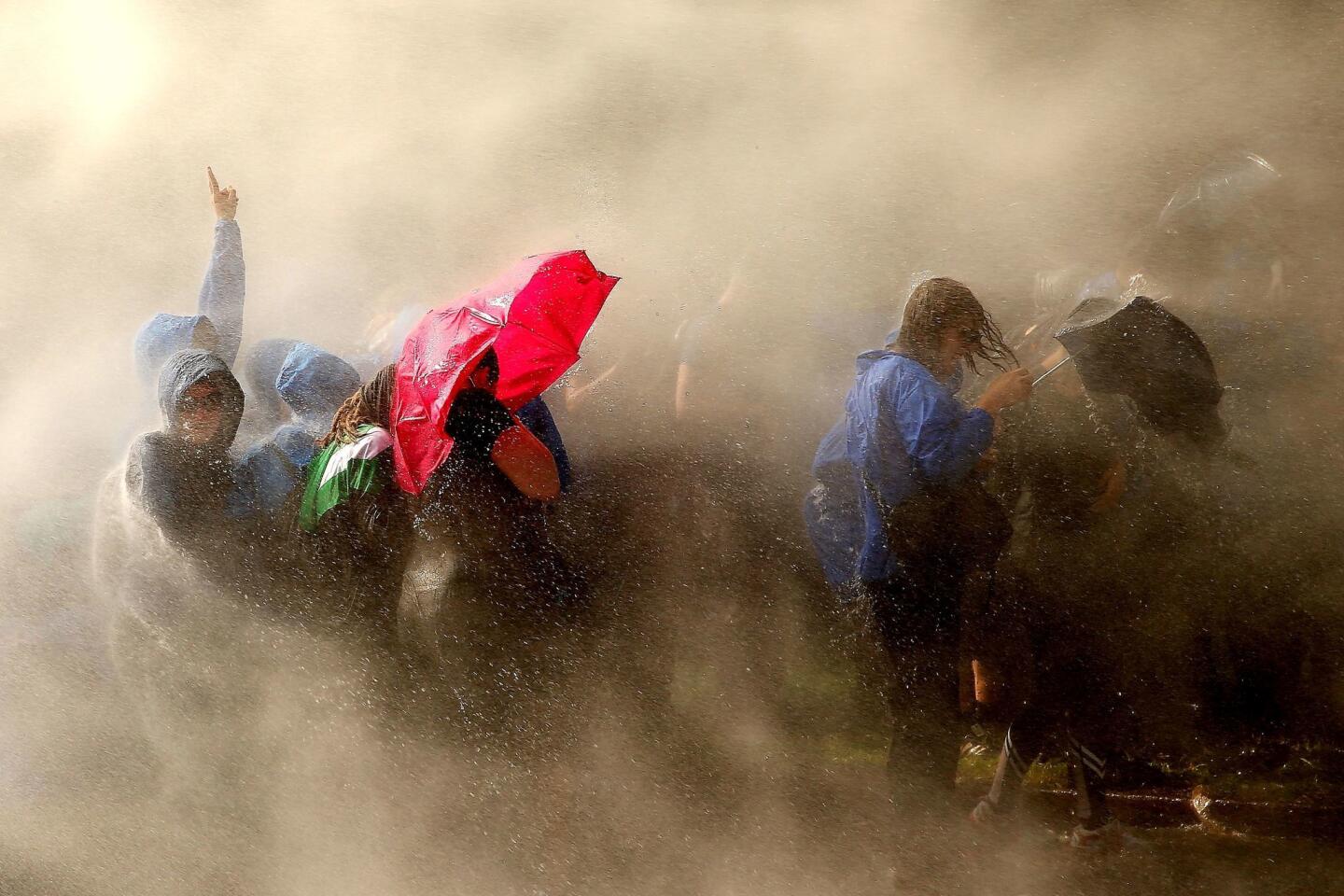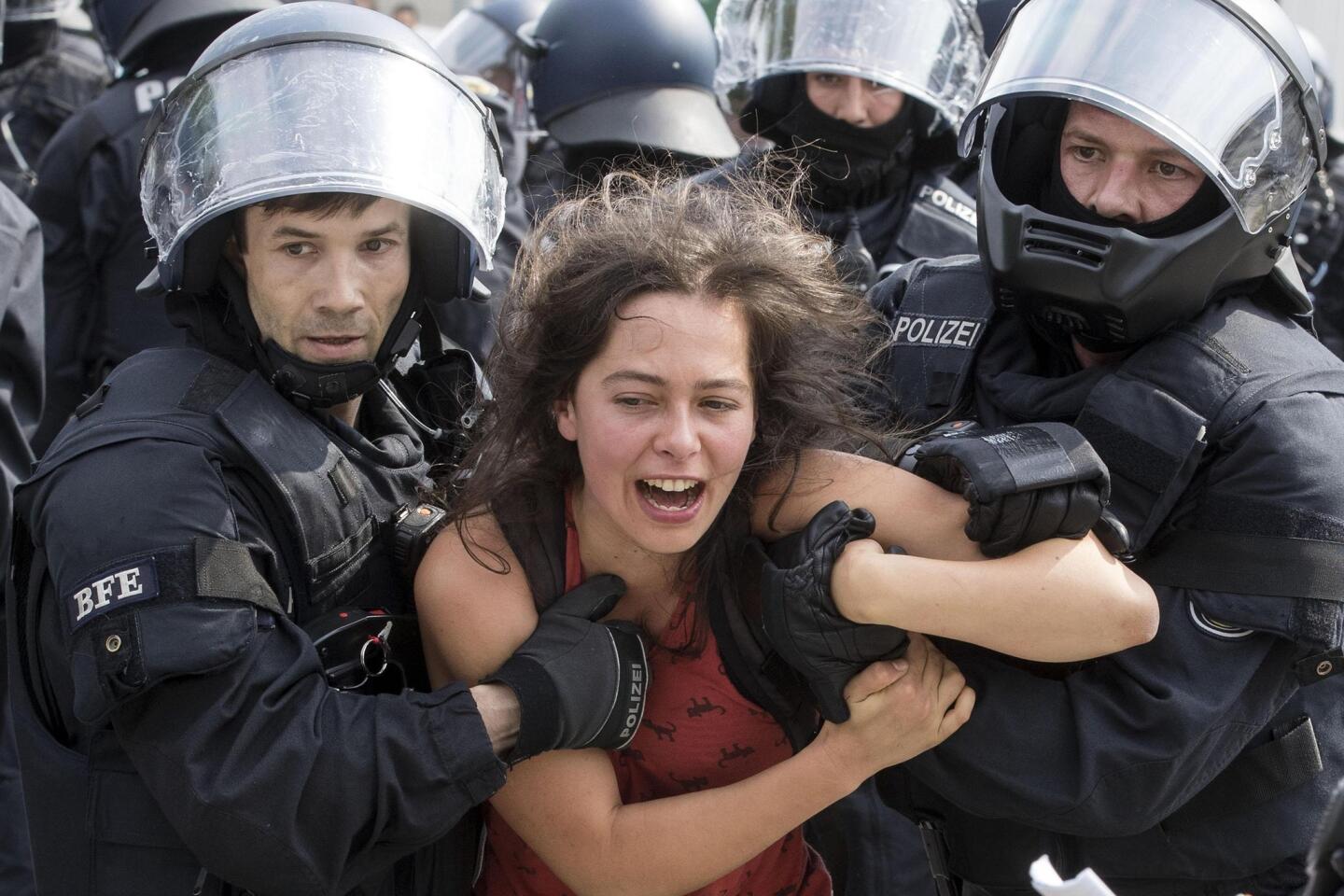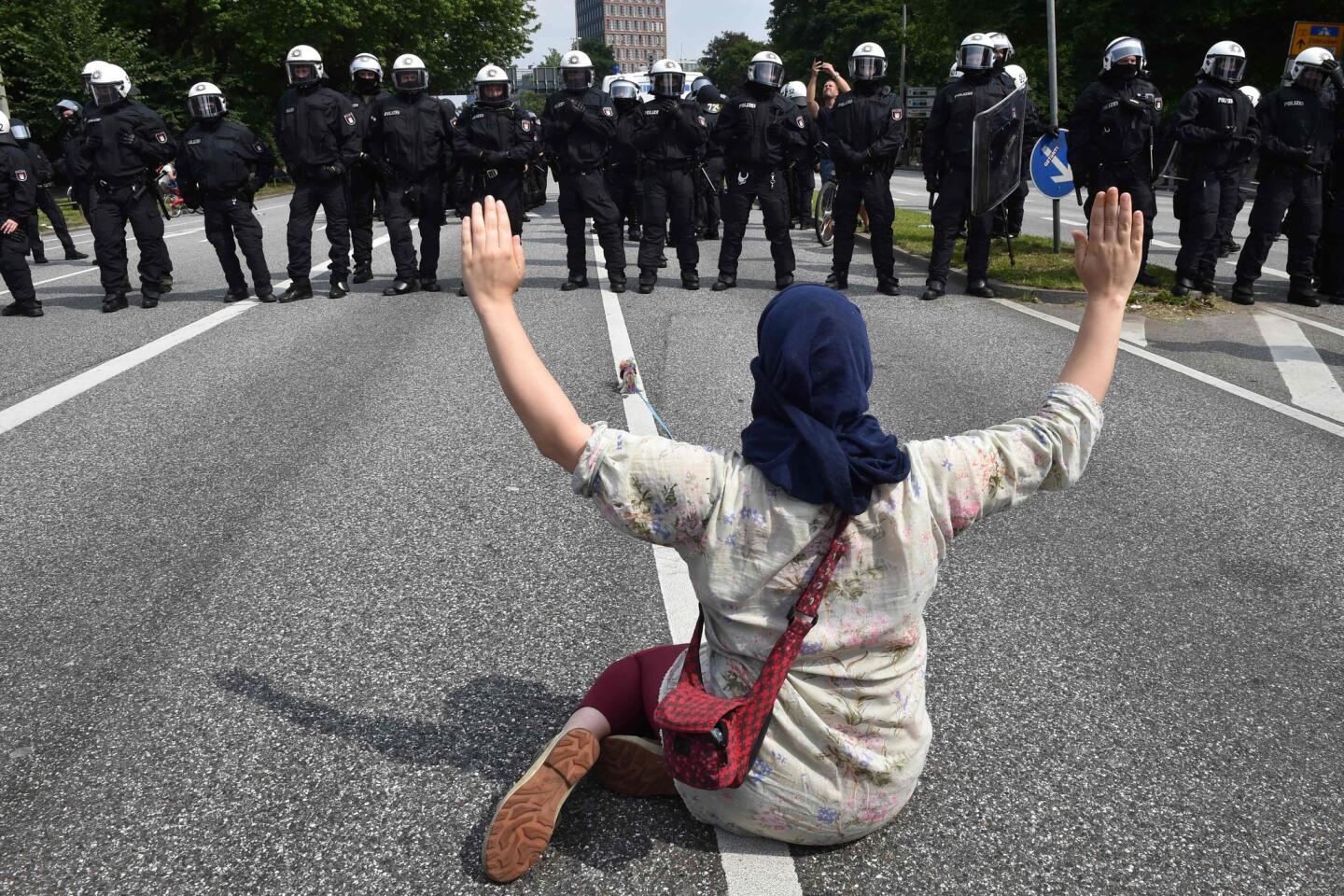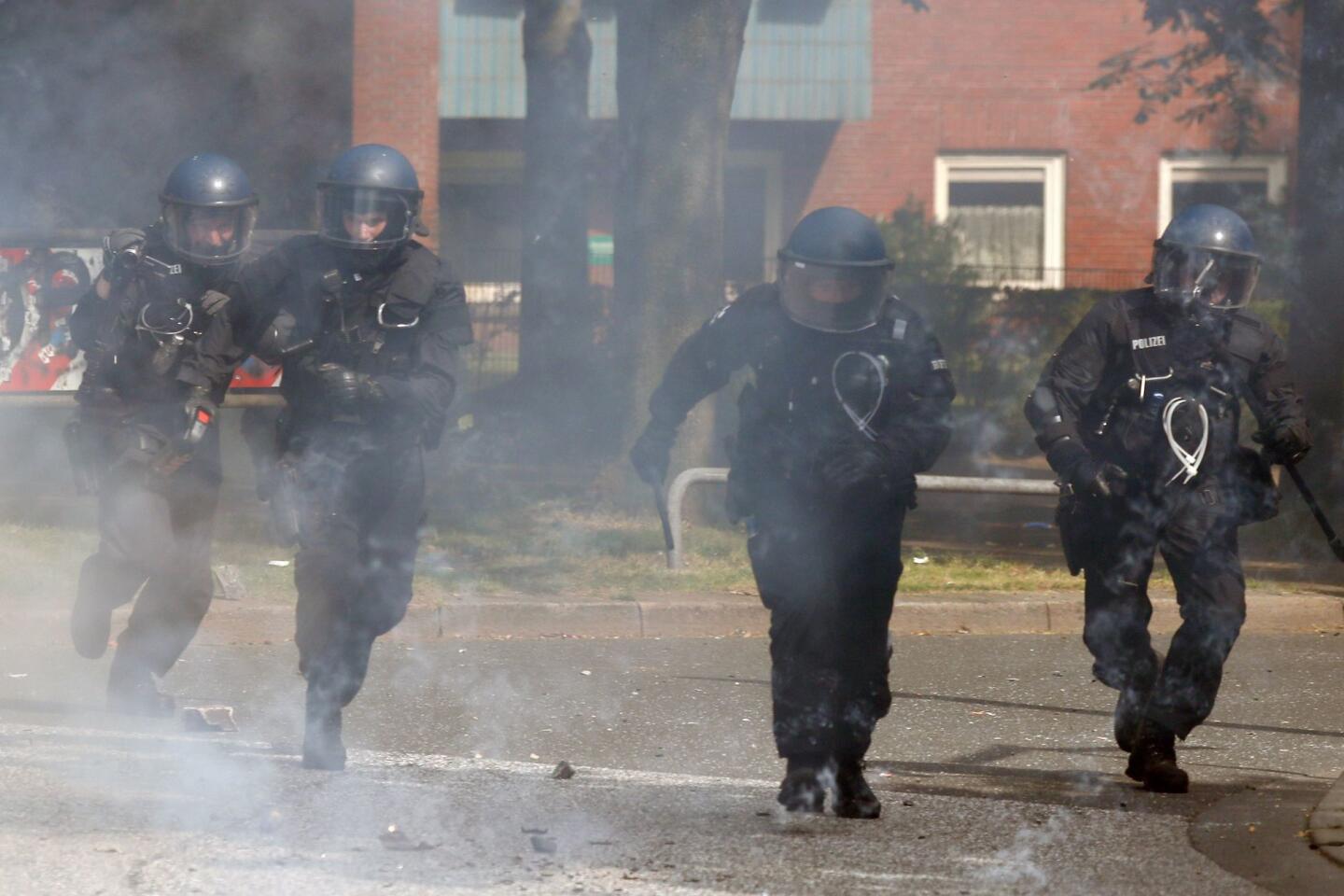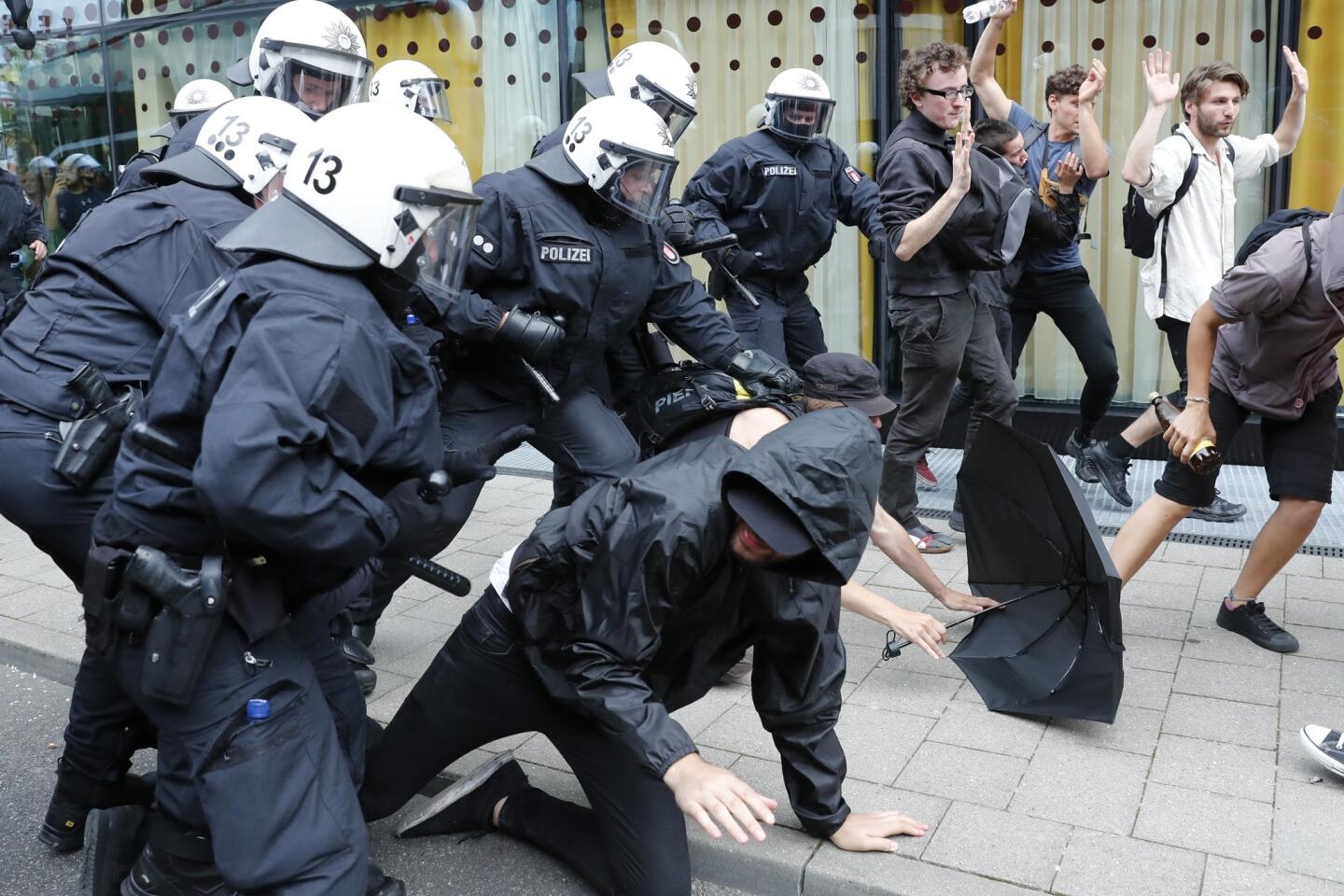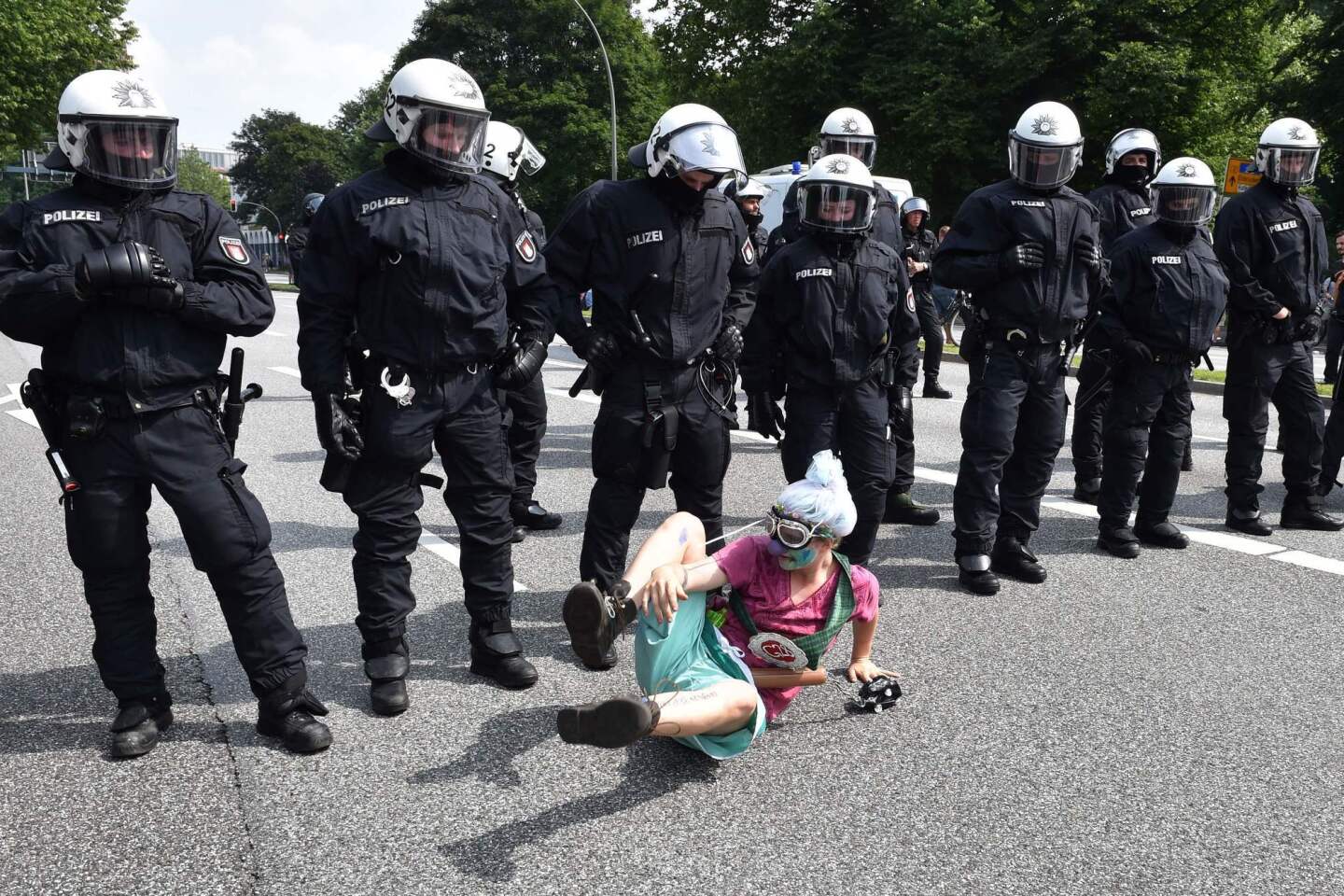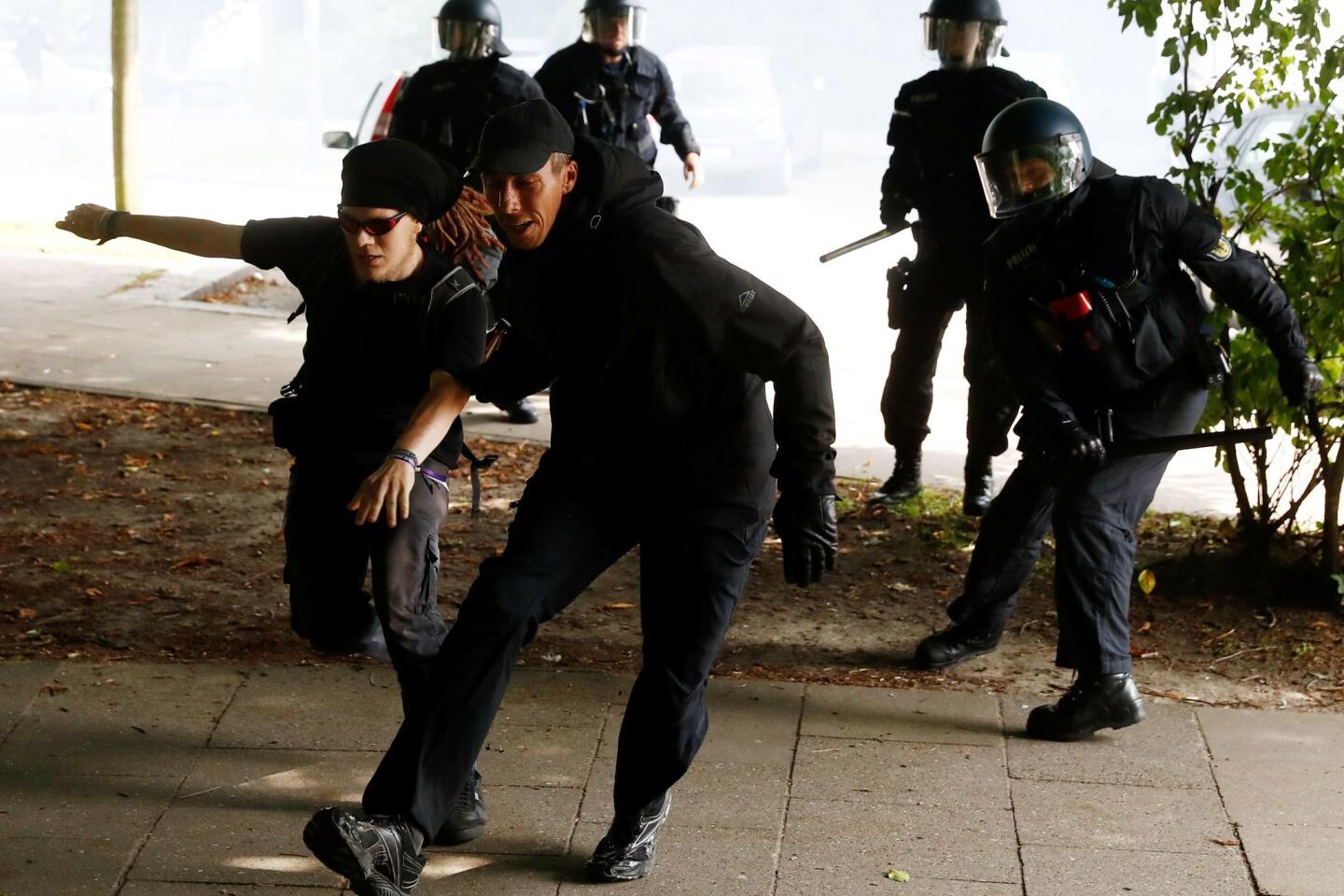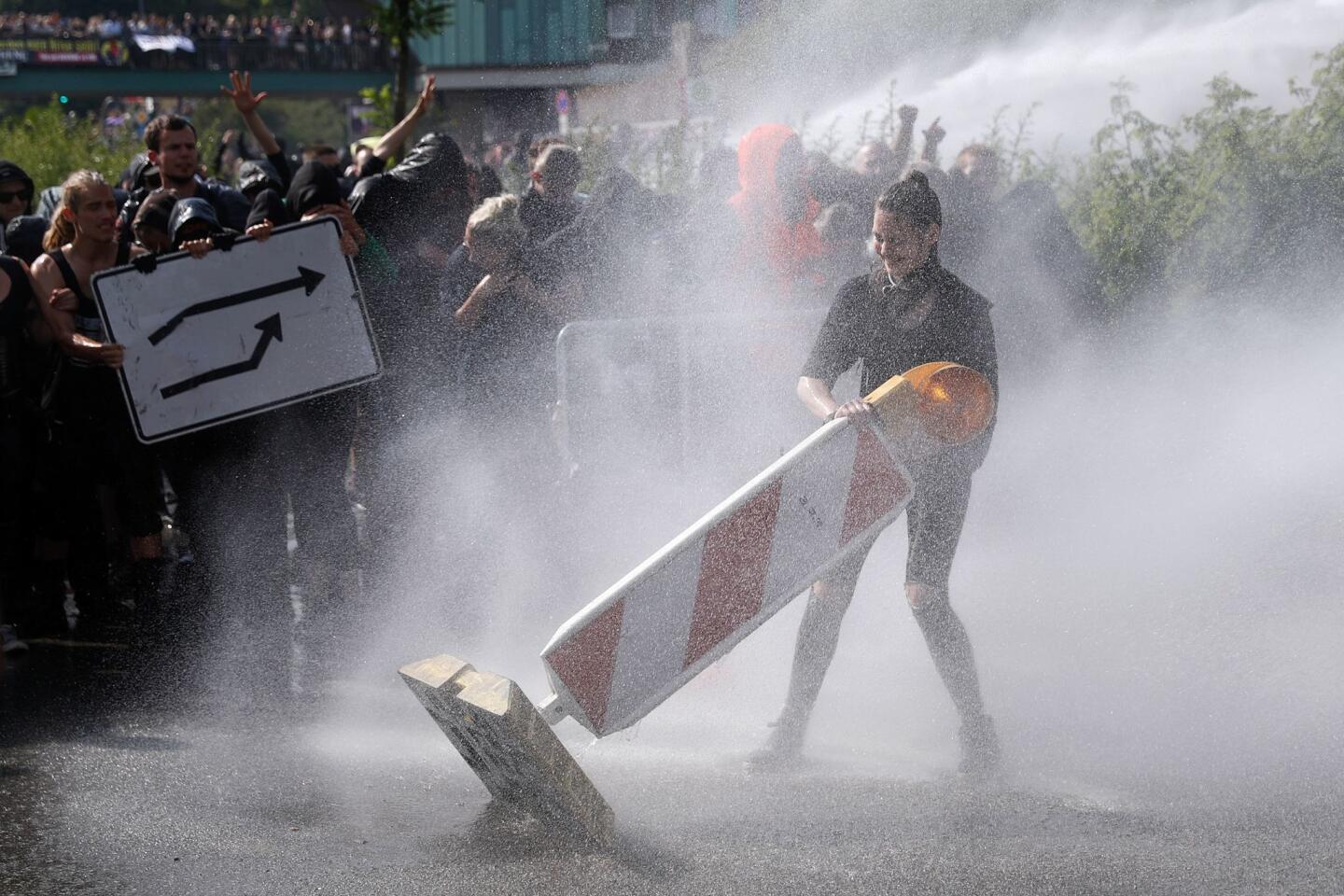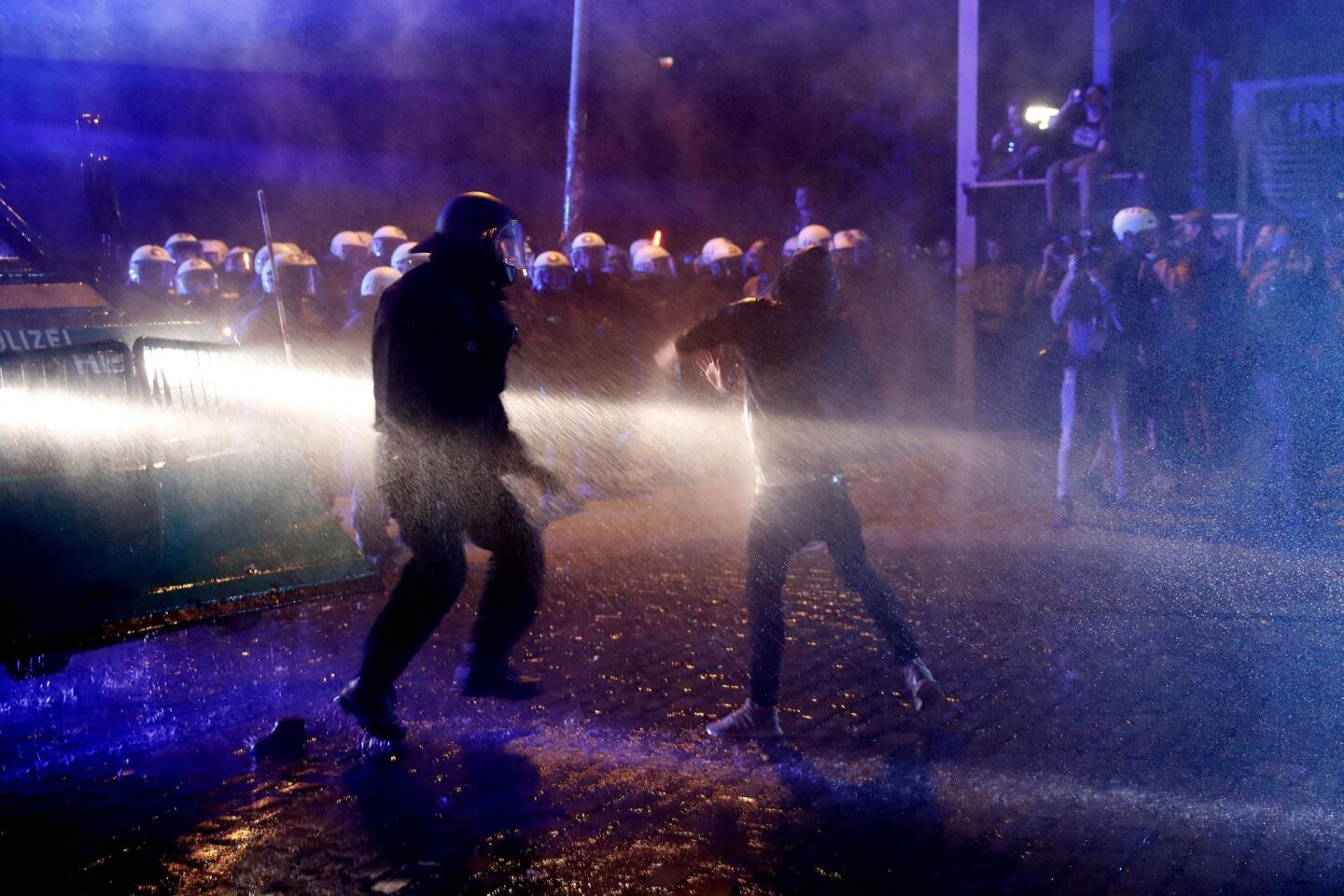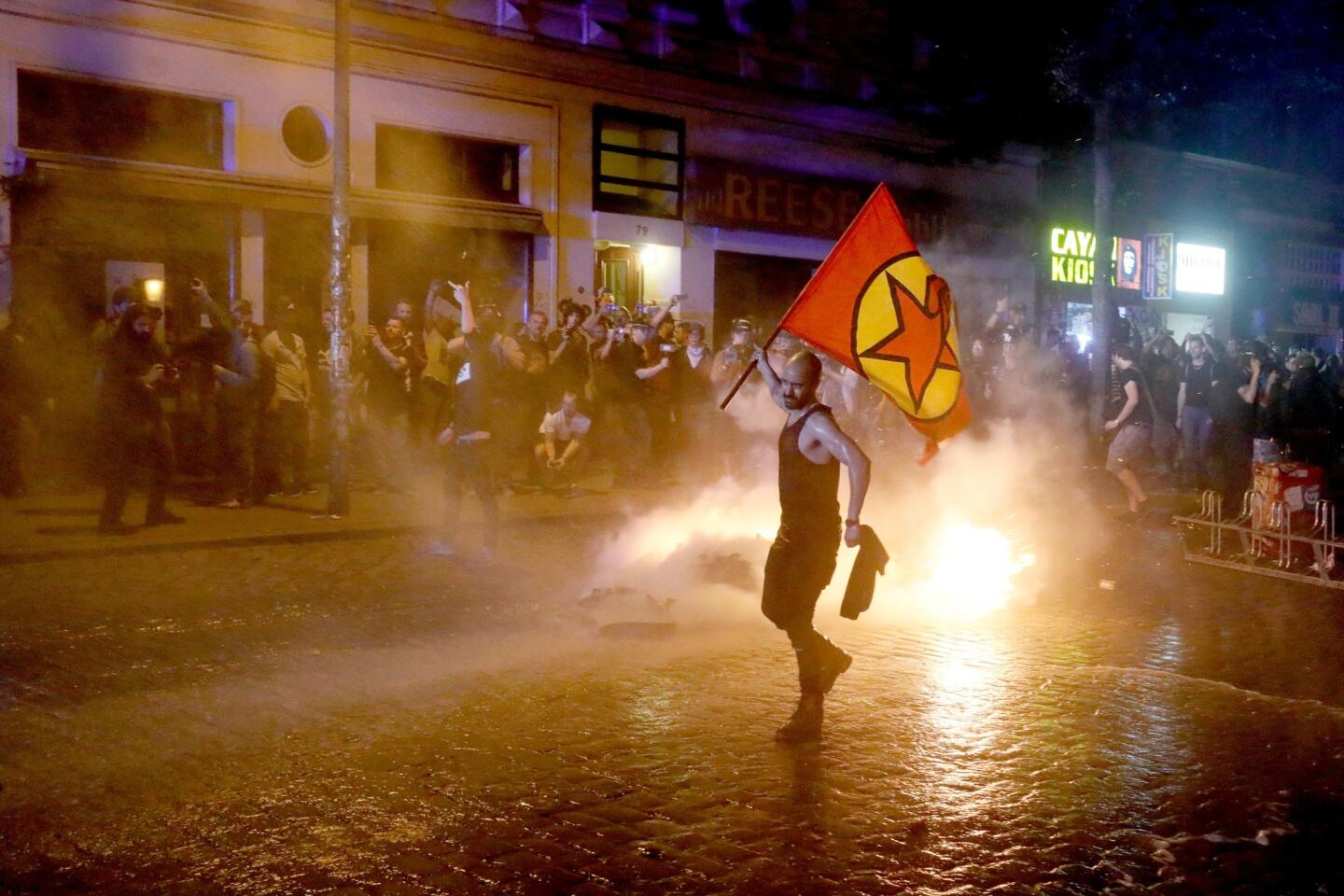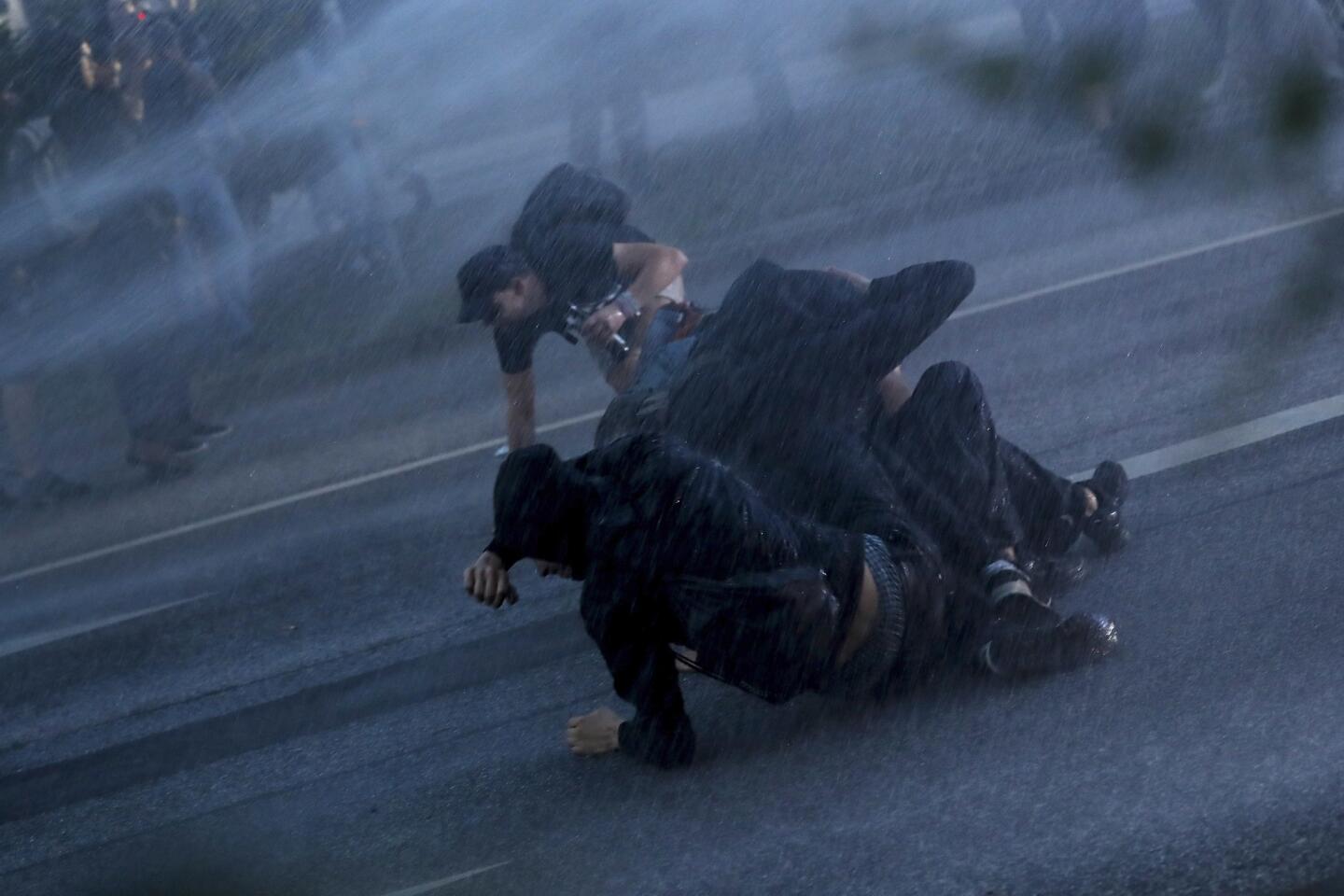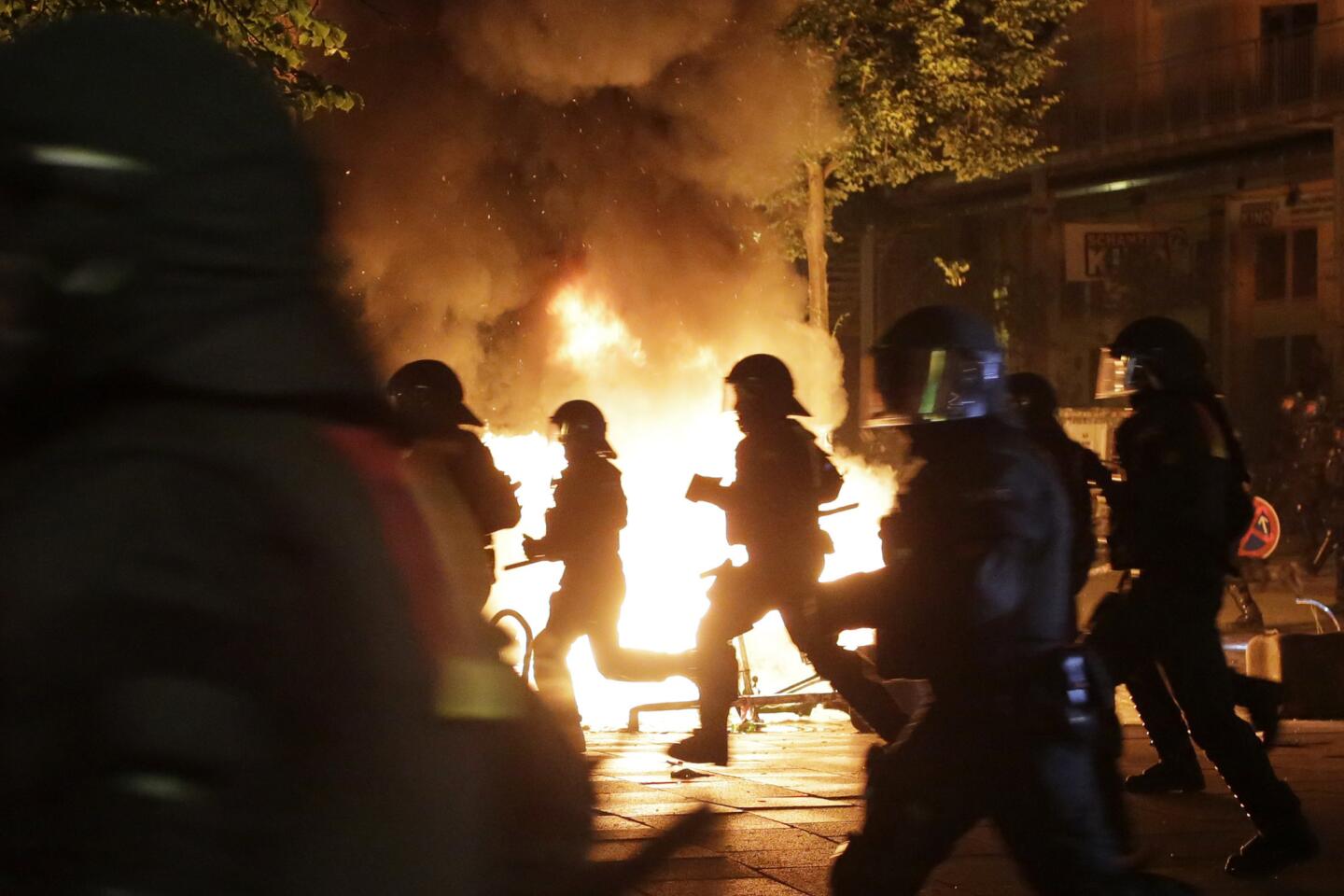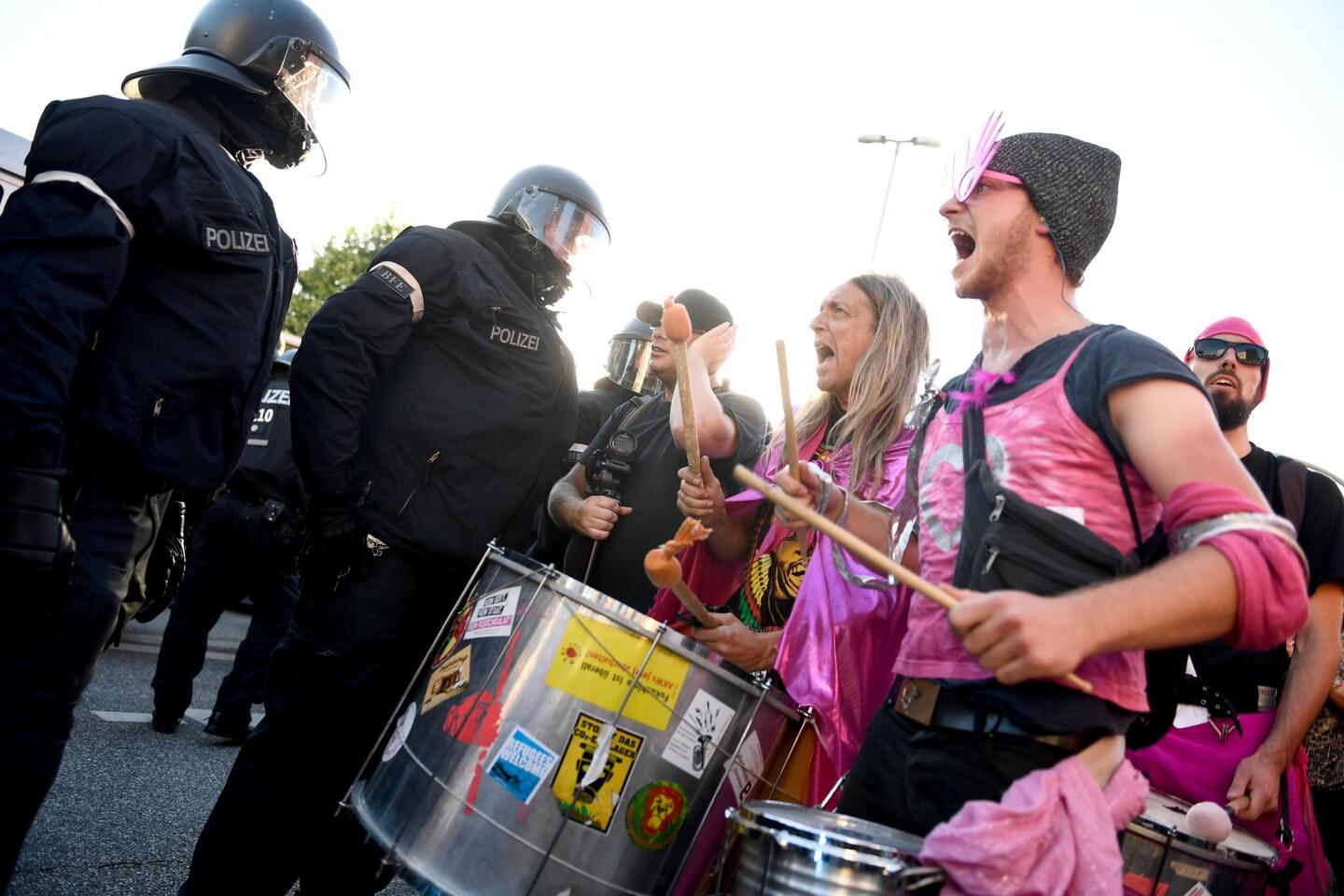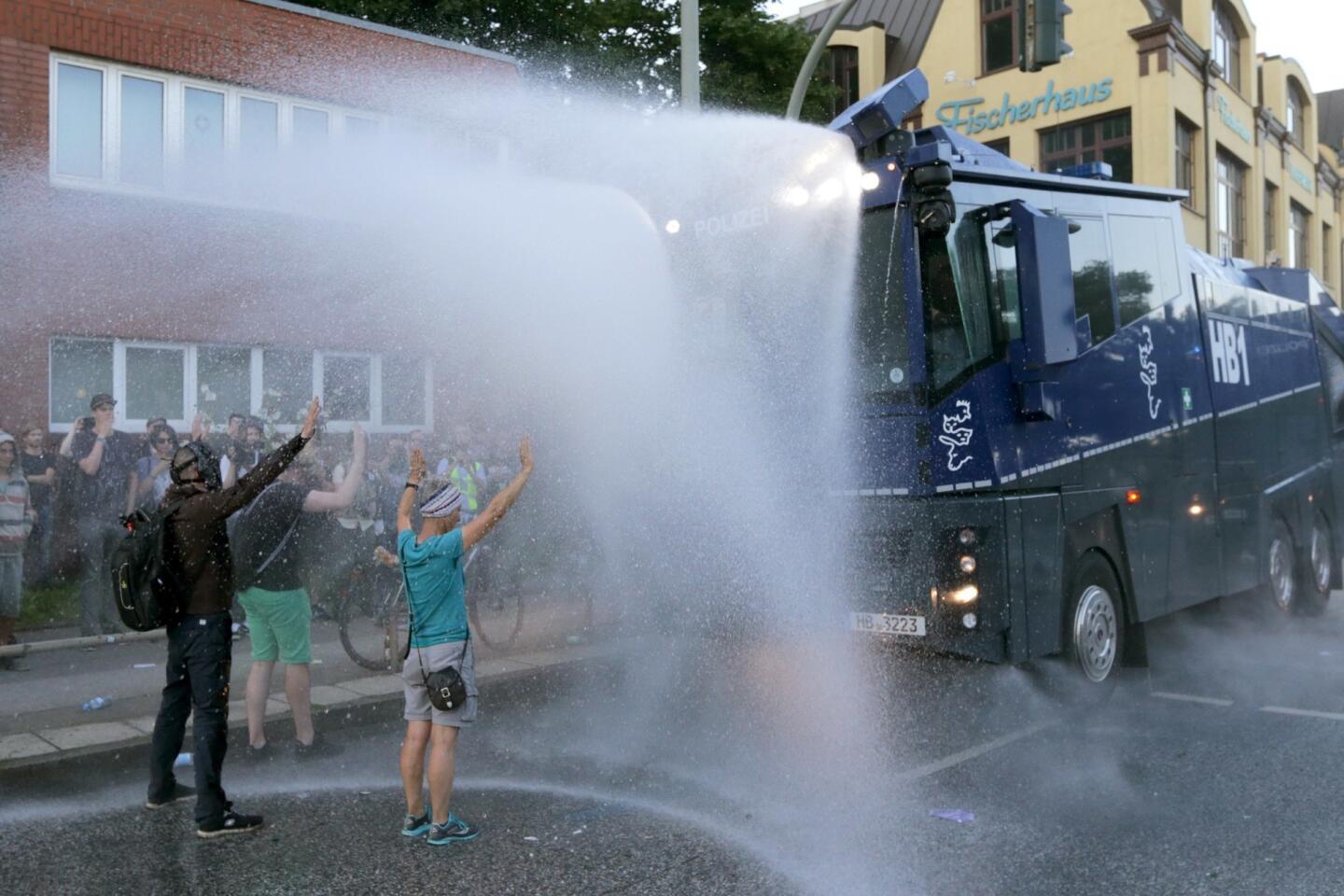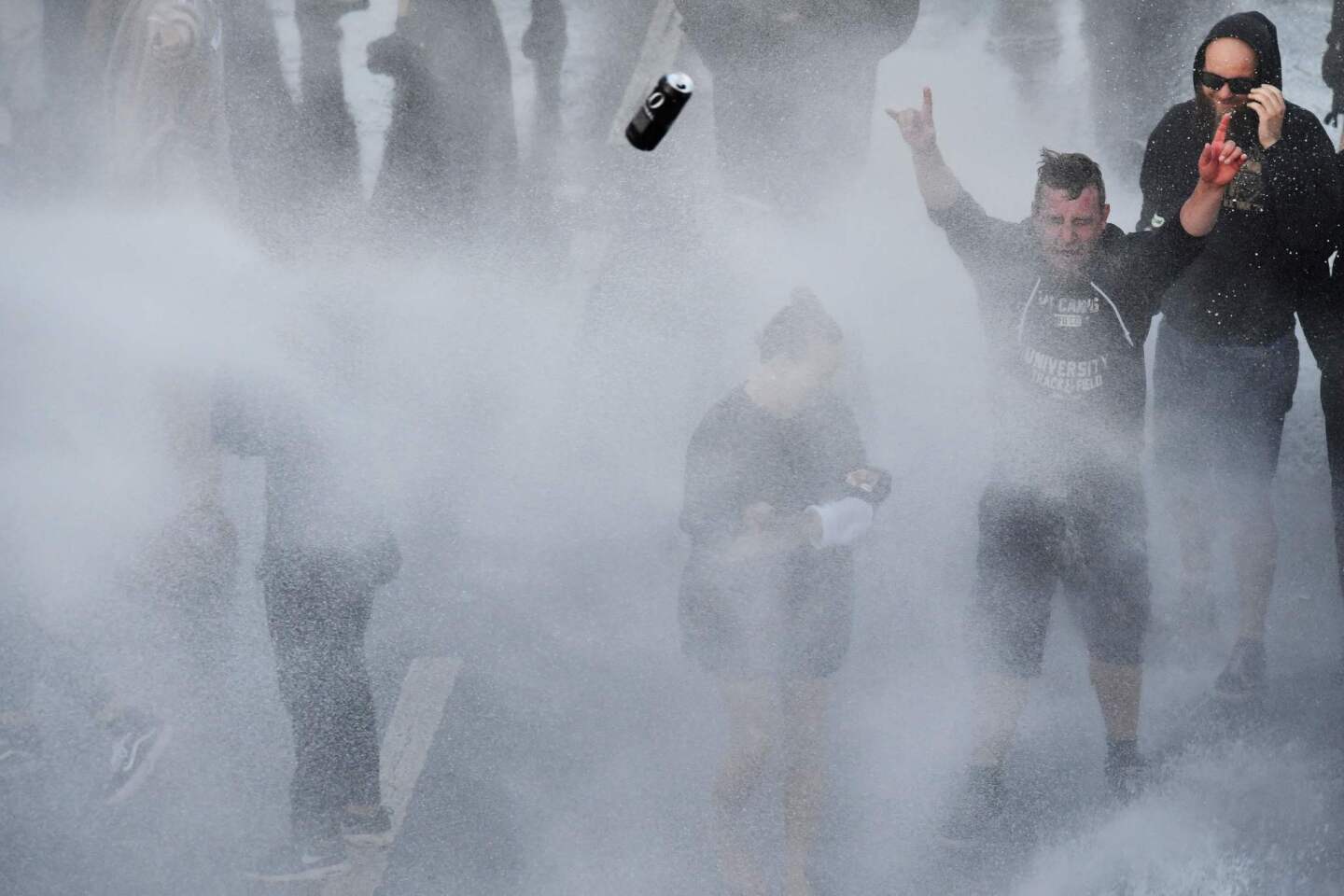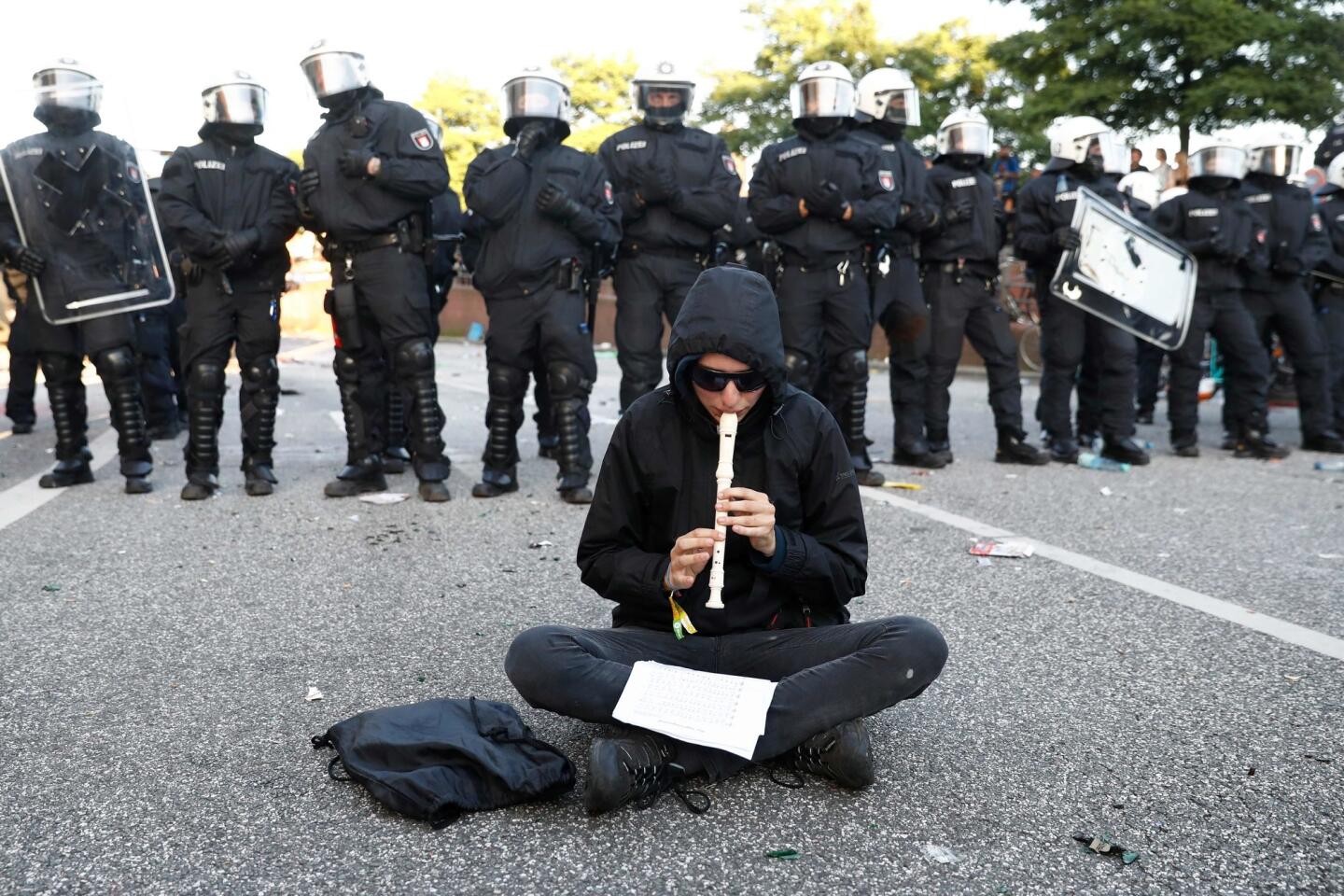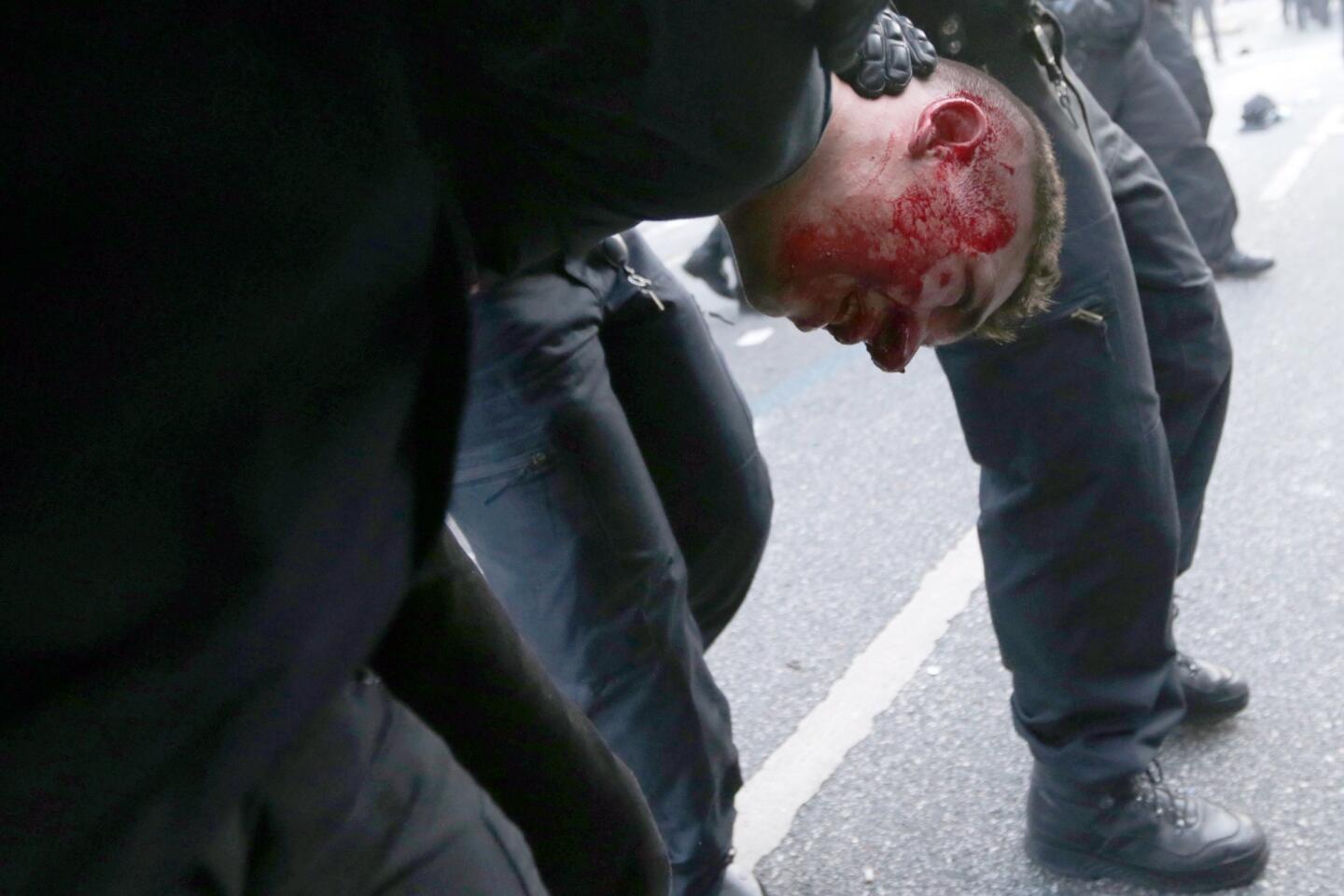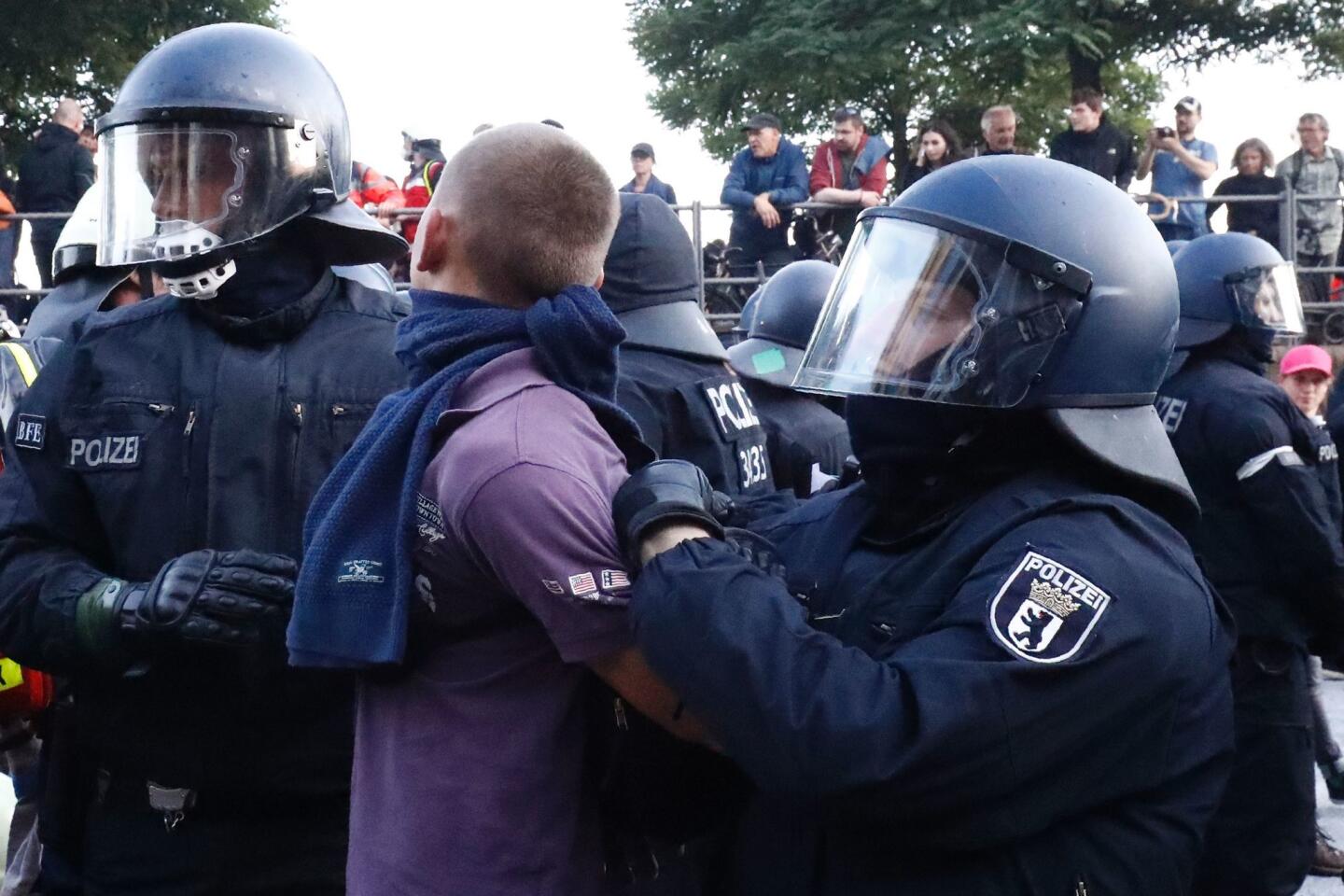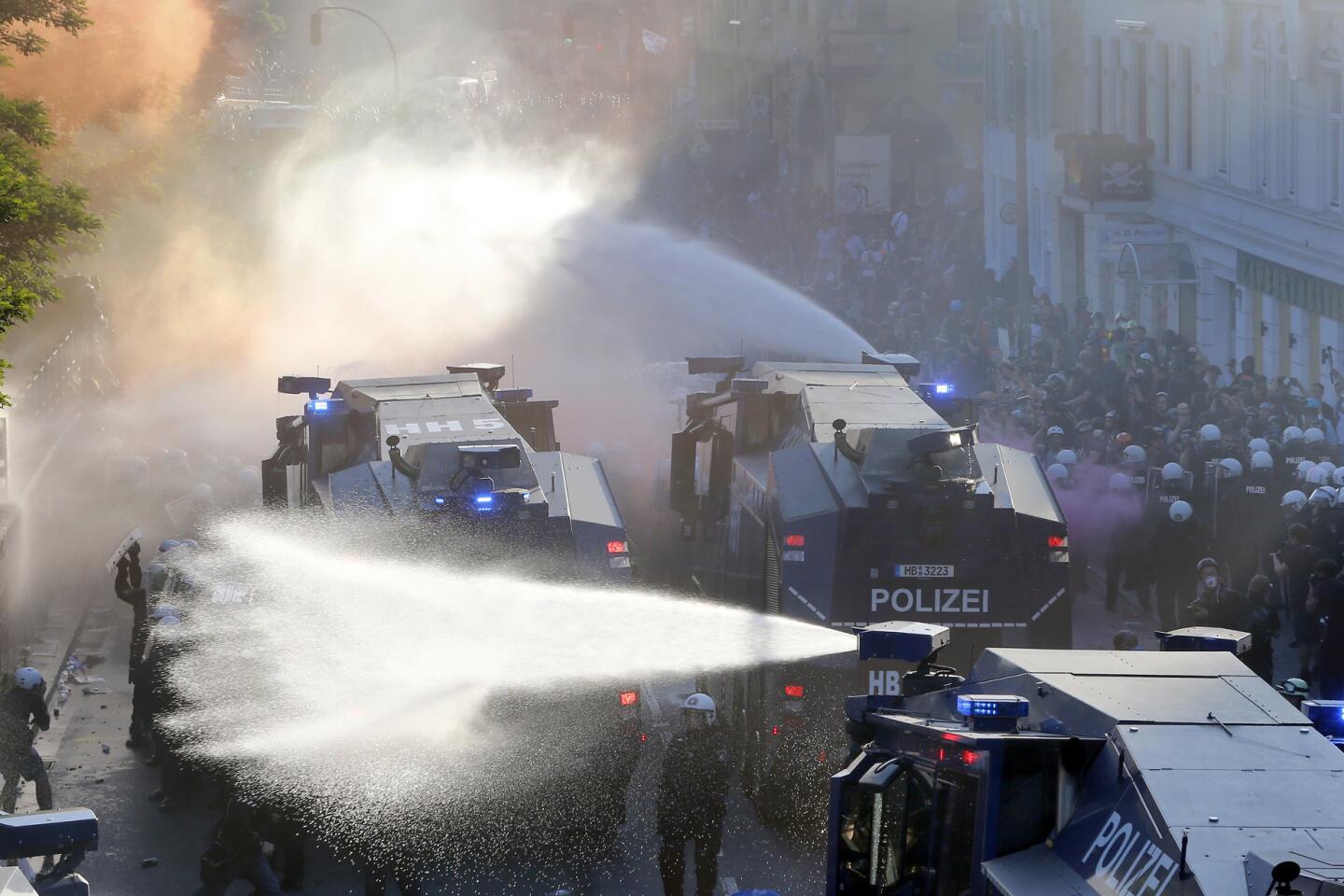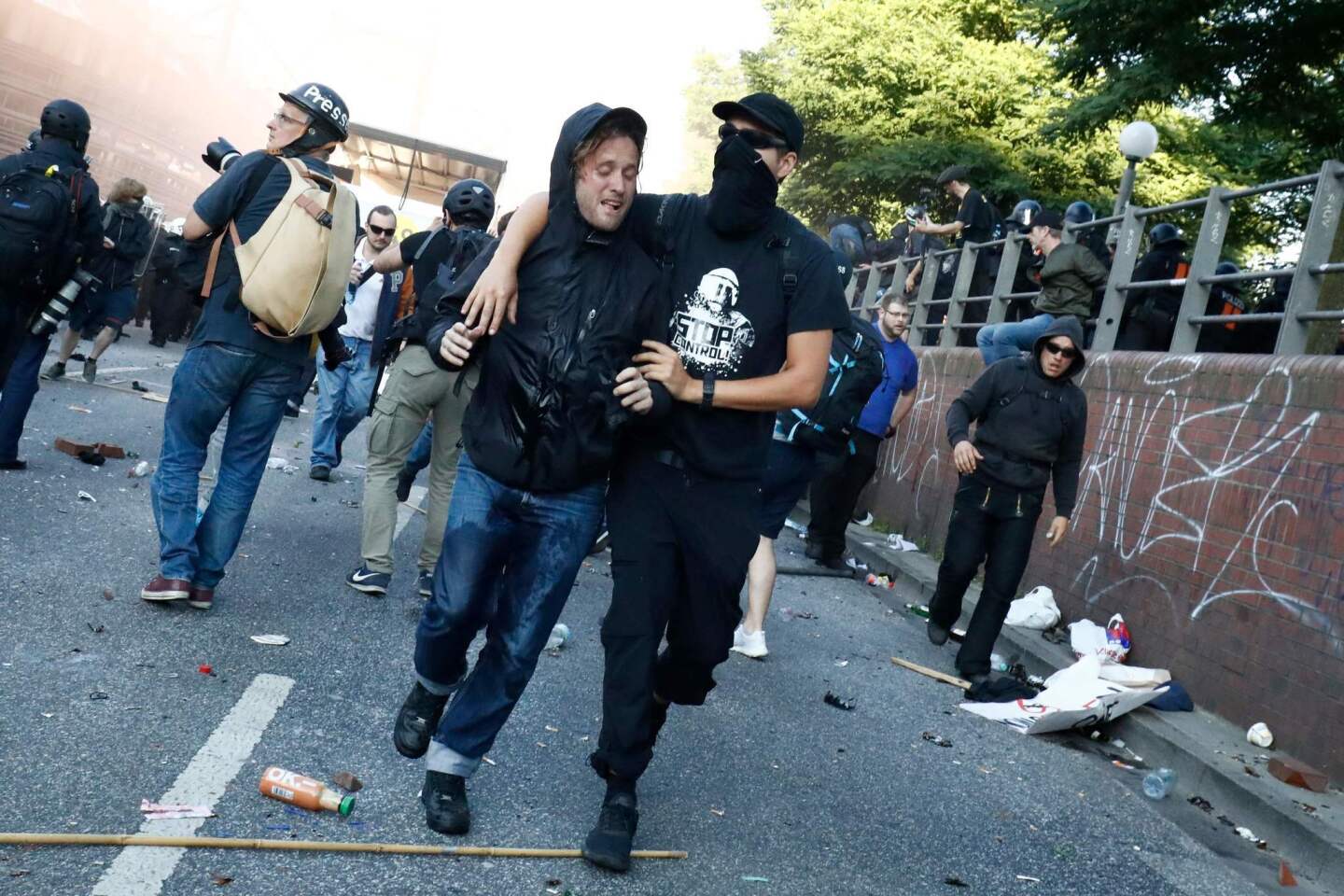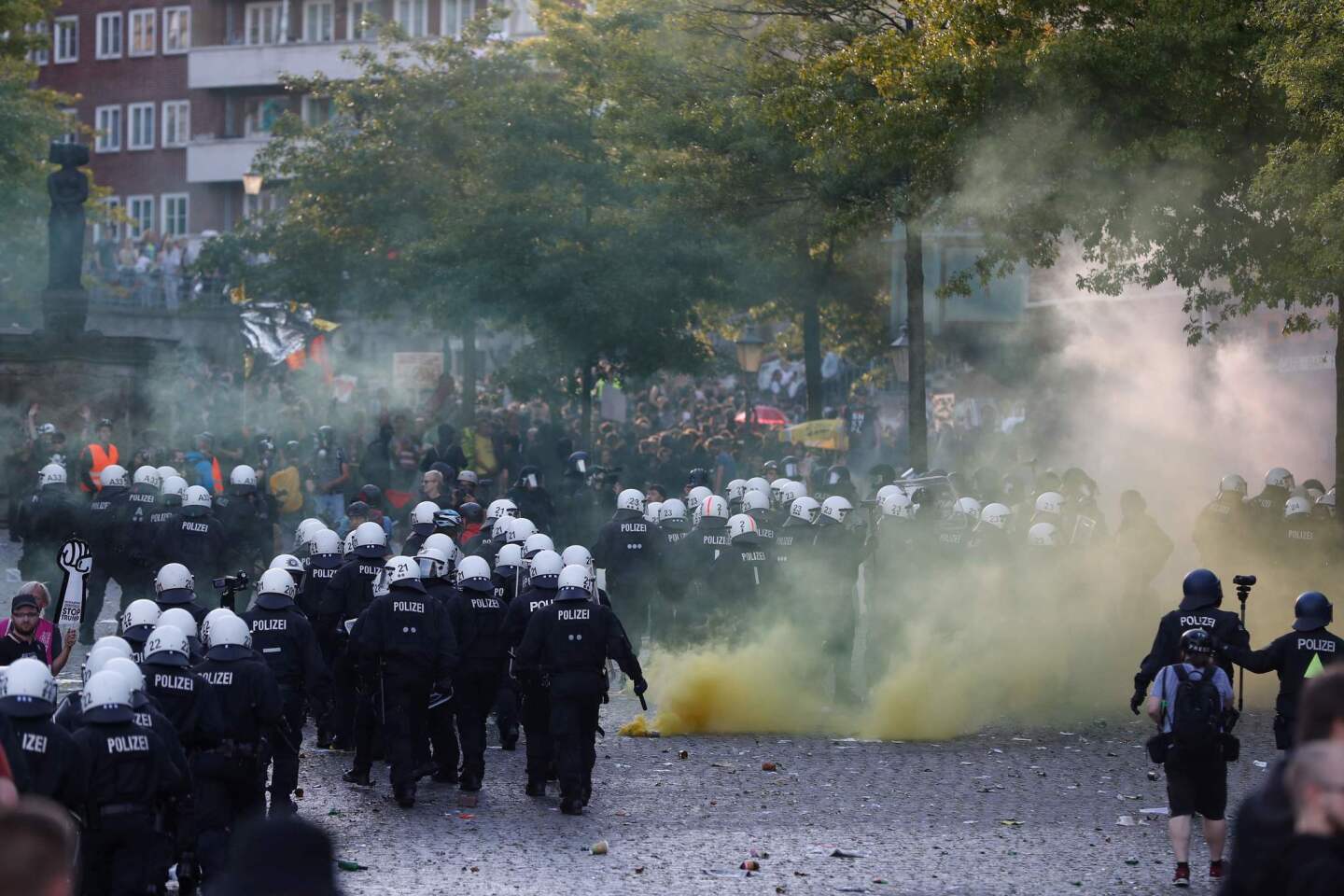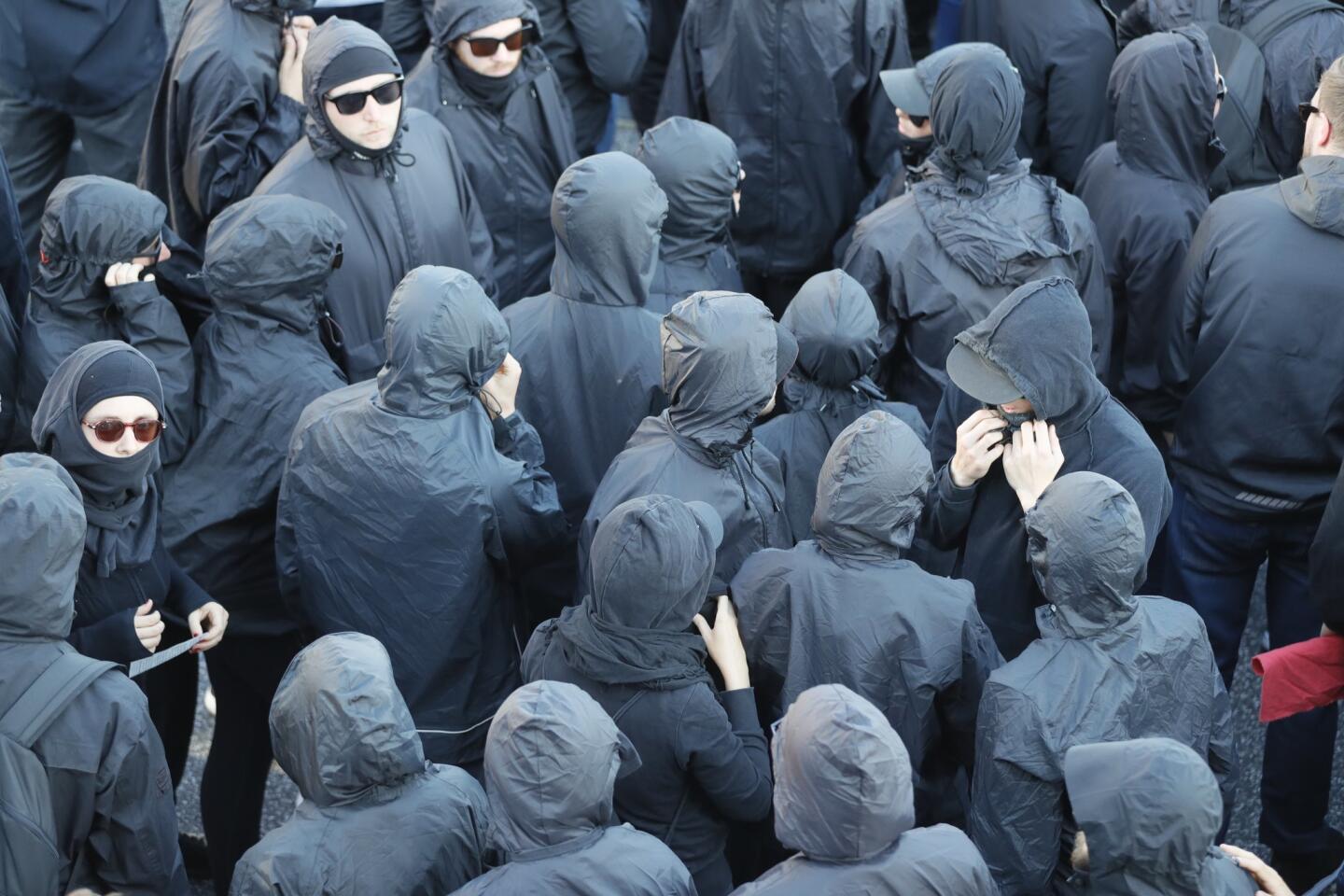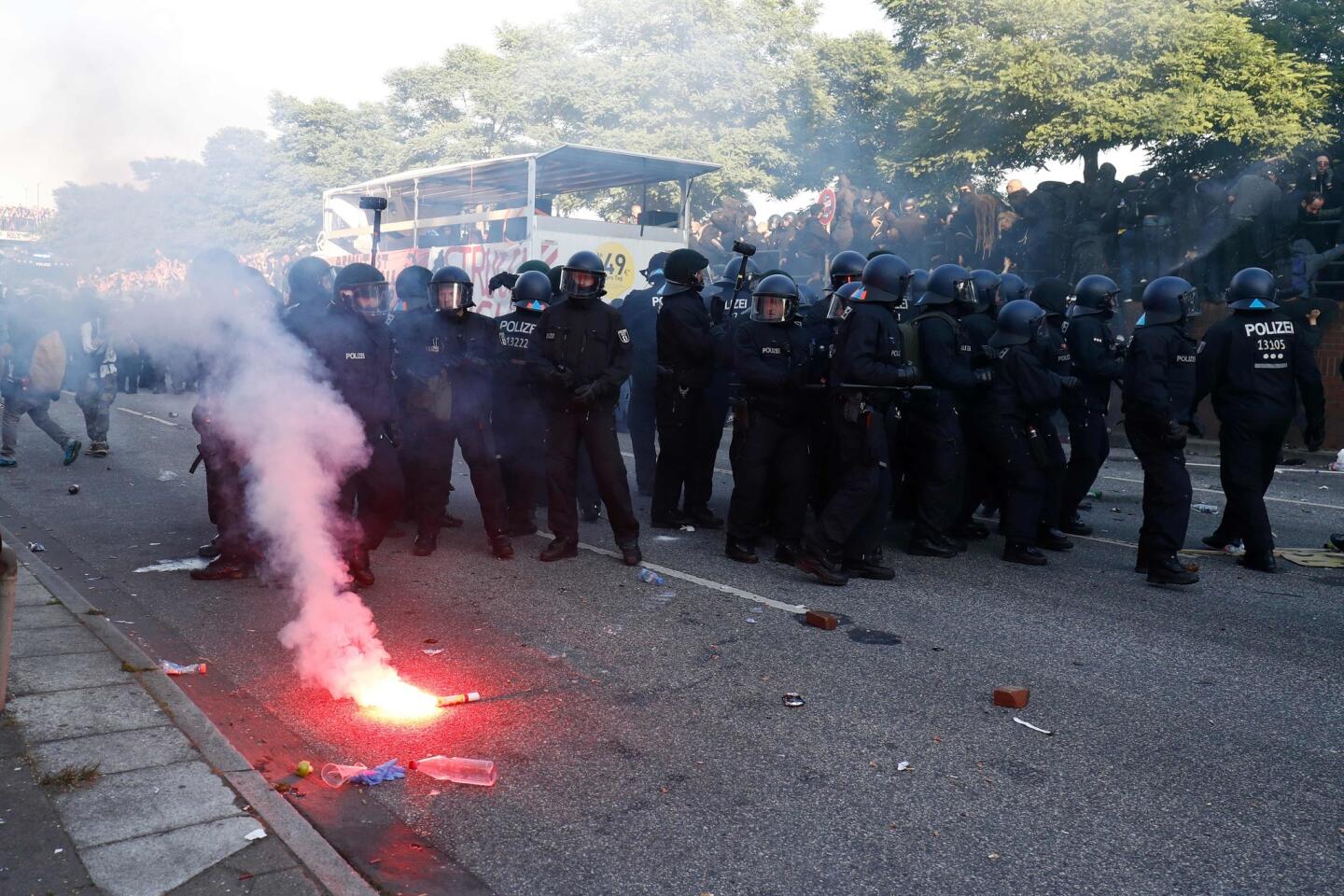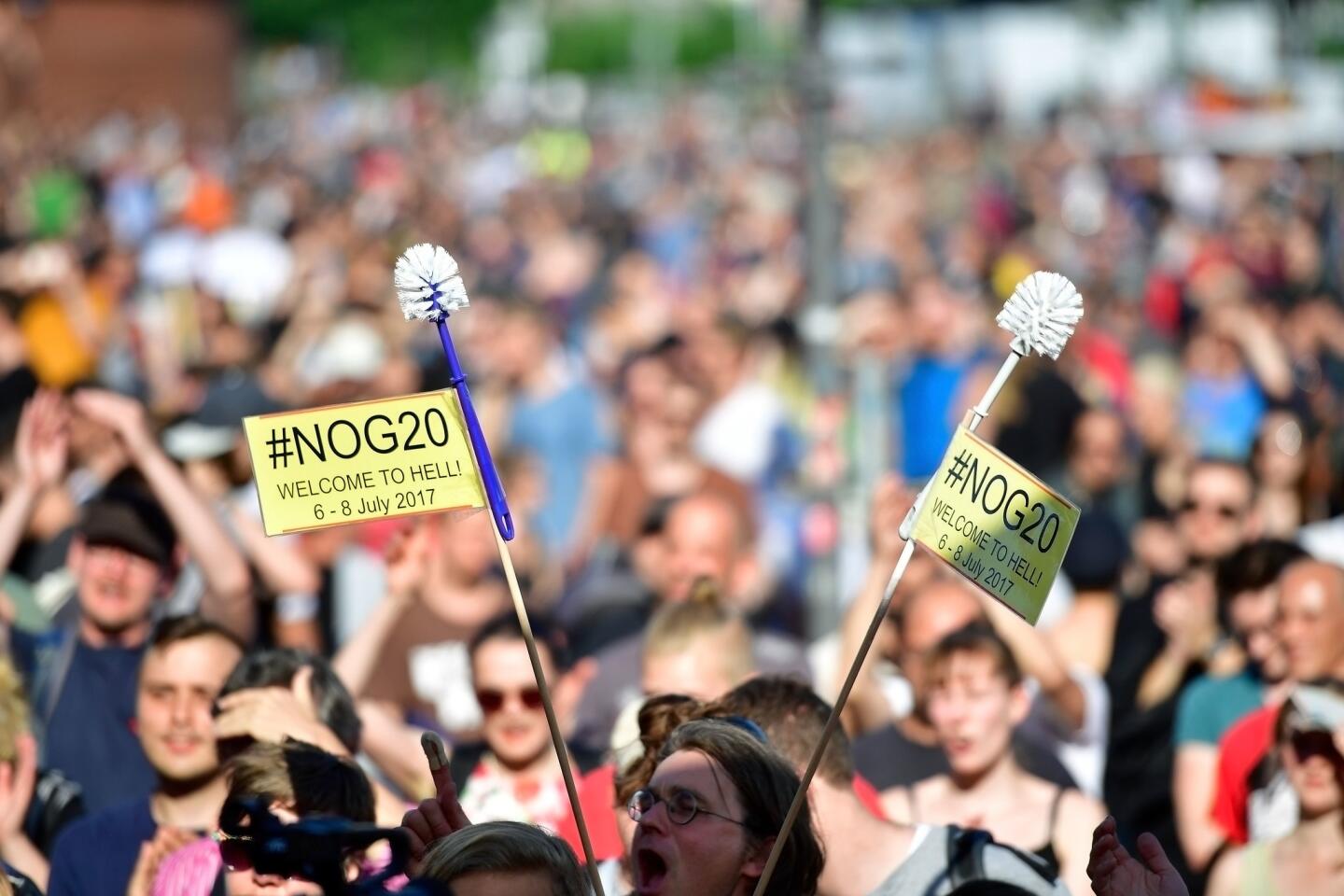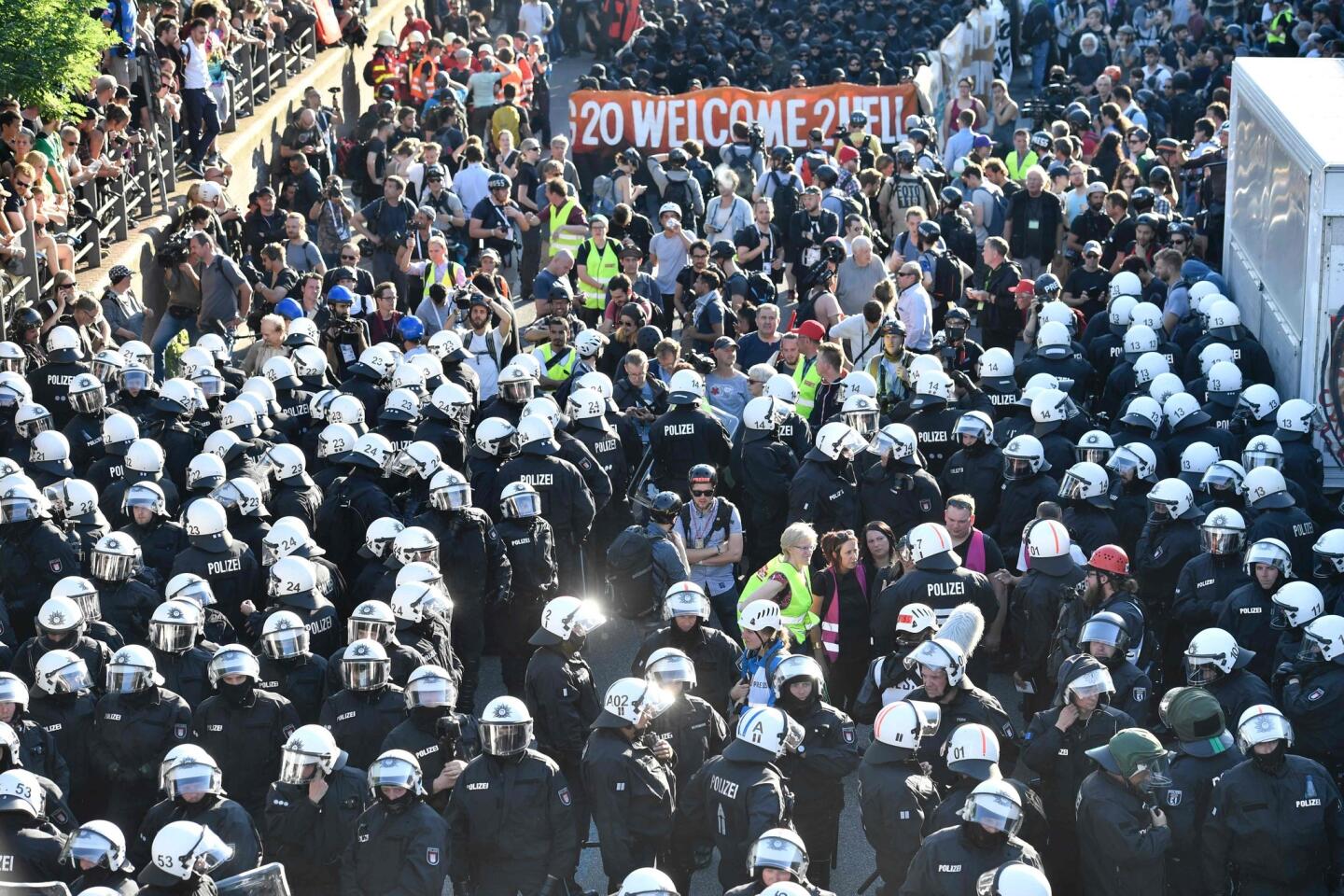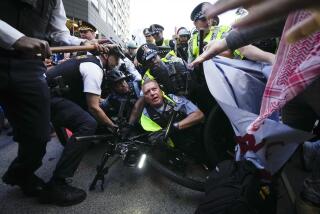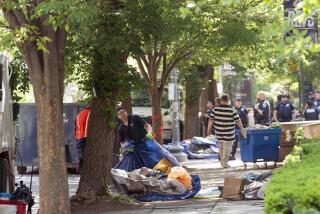Protesters outside G-20 summit clash with riot police

Protesters took to the streets on the second day, burning vehicles and clashing with riot police who used water cannons and tear gas. At least 11 protesters were seriously injured July 7.
Reporting from Hamburg, Germany — Thousands of protesters took to the streets here on the official opening day of the G-20 summit, burning vehicles and clashing with riot police who used water cannons and pepper spray to beat them back. At least 11 protesters were seriously injured in one incident Friday.
The injured demonstrators were hospitalized in critical condition after they fell 13 feet from a barricade during a clash with police. As G-20 leaders wrapped up their meetings across town, additional injured protesters were arriving at hospitals.
Police officers were also injured during the clashes with demonstrators, according to a spokesman for the Hamburg Police Department. He did not elaborate on how they sustained their injuries.
“The images we’re seeing are clear. We’re prepared for more violent acts,” the police spokesman said.
Later in the day, as world leaders began to arrive at the Elbe Philharmonic Hall for a concert, protesters tried to reach the waterfront hall by boat.
German Chancellor Angela Merkel condemned the violent demonstrations during a news conference at the end of the talks on Friday.
“The security forces and their service have my full support,” she said.
Protests against the G-20 in Germany’s second-largest city turned violent on Thursday night, the eve of the summit.
By the time President Trump, Merkel and other world leaders sat down for discussions at the summit Friday morning, cars were burning in western parts of the city.
The escalating demonstrations forced First Lady Melania Trump to stay in her hotel and miss events she was scheduled to attend because it was unsafe to leave, police said. The black-clad anti-globalization demonstrators pelted police with bottles and blocked streets with trash bins.
Police responded with powerful water cannons, in one instance dousing hundreds of protesters gathered on top of a wall.
“What we saw this morning was bigger and more violent than we expected,” said Joachim Lenders, a spokesman for the Hamburg police union DpolG.
Merkel had insisted before the summit that Hamburg was a fitting host because the city is a symbol of free trade, one of the focus points for world leaders’ discussions on Friday and Saturday.
But protesters who marched with signs criticizing globalization said the meeting was misplaced in the left-leaning metropolis.
“I’m against [President] Trump and the G-20 being in Hamburg. It’s a left-wing city, it doesn’t fit in here,” said Theresa Verweyen, 22, who was at a protest that turned violent on Thursday evening in Hamburg’s Schanzenviertel neighborhood, a stronghold of the anti-capitalist and squatter scene in Germany’s second-largest city.
During the night, groups of anarchist and radical activists threw glass bottles at police officers, who deployed water cannons and lines of officers to block off entire streets. On Friday afternoon, police said a total of 160 officers had been injured since protests started earlier this week.
Organizers of the “Welcome to hell” protest said they could not confirm how many demonstrators were injured overall but that “many” people were hurt when police used the water cannons to clear crowds.
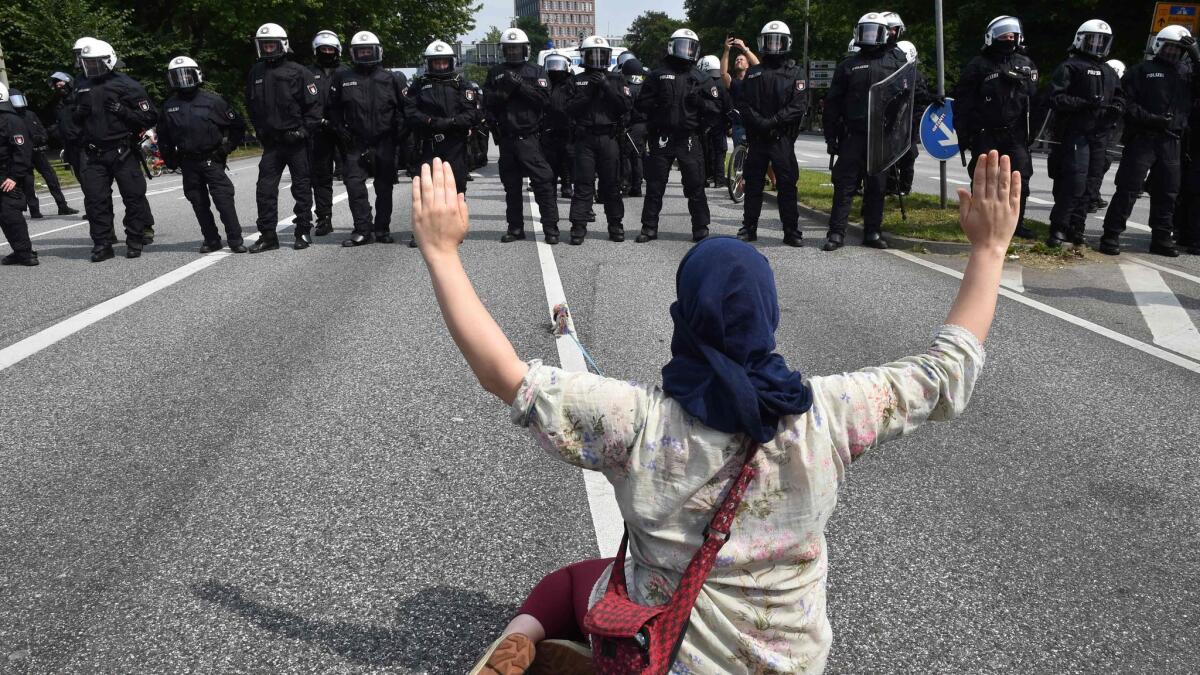
Hamburg Interior Minister Andy Grote said Friday that 45 “terrifying, potentially violent” people were arrested overnight.
City authorities were braced for violence even before the G-20 meetings officially started. Earlier this week, police found explosive devices in and around the city.
Police Chief Ralf Martin Meyer said Tuesday that he was worried the weapons could be a sign that there will be “massive attacks” during the summit.
A police spokesman said Friday that officers were still confiscating weapons.
Protests started on Wednesday evening and were mostly peaceful. The largest demonstration at that point was a rave that started in Hamburg’s harbor with cars blasting techno music and dancers following in the streets.
But police said there was a marked change by Thursday night, when protests became more violent. By then, Trump had already arrived in Hamburg and had held a meeting with Merkel earlier in the evening.
At around 1 a.m. on Friday morning, crowds in the St. Pauli neighborhood were chanting “Hamburg hates the police.” Officers tried to clear the streets with water cannons and armored vehicles; demonstrators responded by lighting scrap metal on fire and yelling.
In one case, a bar owner formed a makeshift barricade with stacked tables as police formed a human chain just outside the entrance of the establishment.
Some protesters used what they call a “five-finger” tactic: They split into smaller crowds of several hundred people so that police could only stop part of a demonstration by blocking off a street. One protester called the scene a “cat-and-mouse game.”
Several hours later, when Trump, Merkel and other world leaders sat down Friday morning for discussions, cars were burning in western parts of the city. German Finance Minister Wolfgang Schäube and other government officials were late for the meeting because their cars were held up by protests.
In some parts of the city, shops and restaurants put up signs saying they were closed for the day.
German Justice Minister Heiko Maas warned on Friday that “anyone committing crimes under the guise of the freedom to protest does not belong on the street. They belong in court.”
Hamburg police called for help Friday morning, prompting convoys of hundreds of officers who traveled from all over Germany to man the streets.
Lenders, the police union spokesman, said the department needed even more officers to patrol all of the protest areas in addition to the hall where G-20 talks are taking place and hotels where the 20 leaders and their staffers are staying.
“In the early morning we saw ‘black blocks’ of anarchists and fires in the streets. People in the city are talking about warlike conditions and I can understand why,” he said.
Mirena Reinhard, 16, said she and dozens of other students from her school in northern Hamburg skipped class to go to a protest for young people. Reinhard said she was “not here to be violent” as she demonstrated against Germany’s weapons exports to war areas.
Iray Mohamd, a 60-year-old electrician who was born in Iran, said he was against Trump’s climate and defense policies and does not want the American president’s views to spread in Germany at the summit.
“Look at the 2% of GDP that he wants from NATO members. It’s billions of euros. We don’t want that for weapons,” Mohamd said.
ALSO
Former White House Chief of Staff John Podesta fires back at unusual Trump tweet
Trump says it’s ‘an honor’ to meet Putin; Russian president ‘delighted’
Trump has first meeting with Mexico’s Peña Nieto amid tense relations
UPDATES:
12:45 p.m.: This article was updated with additional details, including the condition of some of the injured protesters and comments from German Chancellor Angela Merkel about the protests.
This article was originally published at 10:05 a.m.
More to Read
Sign up for Essential California
The most important California stories and recommendations in your inbox every morning.
You may occasionally receive promotional content from the Los Angeles Times.
